As a book marketing expert with a busy speaking and webinar schedule, I get a lot of questions about how to market a book, but the top questions I get may surprise you – or at least a couple of them likely will.
Speaking to thousands of authors in any given year, covering every genre under the sun, ranging from first timers to bestsellers, I can tell you that at the end of the day, we all have something in common – we all want to know how to market a book the right way.
That’s right, I talk to bestselling authors who feel they can do more and know there are some holes in their approach, and I talk to first time authors who are hungry for any advice I can give them on how to get started on the right foot.
And thinking back on all those conversations I’ve pulled together the top questions I get about how to market a book because I figure we can all stand to learn something new, and we can all benefit from a reminder that each of us are in the same boat, just trying to put our best out there and connect with readers on that next level.
These are in no particular order, so let’s just get started.
Question 1: When should I release my book?
Great question, impossible to answer. Well, not true – I have an answer, but it’s impossible to give you the one that you want.
In today’s market choosing an exact release date really isn’t as critical as it used to be. There’s just so much competition in publishing now, and so much information being shared at a breakneck pace thanks to social media and the like, it’s easy to get lost in the shuffle and if you’re focused on the date, you’re focused on the wrong things.
What I encourage you to do is focus on what you plan to do to support your release. Knowing how to market a book the right way is going to get you a lot farther than releasing at the exact right time, because that just doesn’t exist anymore.
The only exception to this of course is if you have a holiday tie-in or some other timely event that will really push your book marketing options over the edge.
Question 2: Should I not release during Christmas?
This question also comes in the form of “during summer” or “during back from school” but my answer is still the same.
Very much like question 1, I’m a fan of releasing your book as soon as you have your marketing plan lined up. The marketing and promotion is key.
If you have a Christmas book, then you really should be releasing it in July, no later than September.
If you have a book entirely unrelated to the holidays and worry about being white noise with everything else going on, that’s a valid concern, but honestly that short window you might want to avoid is only the couple of weeks before the actual holidays.
When you really figure out how to market a book the right way, you also figure out that it’s a marathon and not a sprint, so worry less about timing and focus more on what you can do to keep drumming up exposure.
Question 3: Do I need a hardcover version of the book?
You don’t need a hardcover to release the book. Honestly, I’m a fan of starting with the Kindle edition, then releasing a paperback.
If you want to market a book with ARCs and do some pre-release efforts then it’s best to focus on releasing both the paperback and Kindle editions together.
Some genres lend themselves really well to hardcovers, like children’s books, cook books, coffee table and photography books – you all know who you are.
But if you write fiction or super competitive non-fiction like business or self-help, don’t worry about the hardcover. Buyers in these markets just aren’t drawn to that format like they used to be and you can save yourself the headache.
Question 4: Should I have a website?
Yes. You should have a website. That doesn’t mean it needs to be super expensive though. What’s more important is that it’s appropriate for your topic or genre, and it’s easy to navigate and gives you a place to promote all your work and accolades.
Do you have to have a website to release your first book? No, not if it’s not in your budget. Meaning, not if it prevents you from investing in other promotional efforts.
My recommendation, if you don’t have a website at the get-go, is to ensure your Author Central page is top notch and really optimized. Next would be a single social media account you’re really comfortable with and that makes sense for who your potential buyers are. Put the effort into these two places and you can save up for a website.
A silver lining to waiting on a website is it helps you really solidify your brand. Most authors I know, myself included, evolve as they release more books and find their stride.
So if you’re not 100% sure of how you want to brand yourself and your books, hold off a bit on investing in a website that may not suit your needs a year down the road.
Question 5: Do I need Verified Purchase reviews only on Amazon?
Amazon will always be tricky because they’re always changing things. But when it comes to figuring out how to market a book, you need to focus more on the efforts that you know will help you reach the right people.
What I’m saying is, worrying about Amazon’s ever-changing rules isn’t a great use of time or energy.
Plus, Amazon has a lot of (top secret) parameters for determining whether an author or book is violating terms of service and the fact that there are thousands of bestsellers out there with plenty of non-Verified Purchase reviews just goes to show that you can only prevent so much.
Focus on reminding people to post an honest, thoughtful, constructive review of the book and that’s really the best you can do.
Question 6: Should I do an audio book?
Audiobooks are not inexpensive, let’s get that out of the way first.
So when you’re figuring out how to market a book the most effective way possible, and you develop a plan, if you run out of time and money for an audiobook, or you start wondering if you should sacrifice other efforts to create one, it’s probably not the right time for you.
You should also keep in mind in mind that what’s popular in audiobooks shifts from year to year. In 2018, audiobook listeners favored a mix of self-help titles, books on politics, and fantasy and science fiction. But the most popular audiobook genres overall are mysteries, suspense and thriller, science fiction, and romance, according to Publisher’s Weekly.
My answer, if you have the money and you’ve done your market research and determined your particular book has a good shot in an audio format, then go for it. But like all your other books, be sure you’re ready with a very specific audiobook-centric marketing plan.
Question 7: Can you pitch me for a movie deal?
Oh, this question is always a sensitive one. The easy answer is no, but that’s mostly because I just don’t offer that service, it’s not my focus.
If an author comes to us dead set on a movie deal, we encourage them to find an agent that specializes in that kind of work. Because it’s a long and arduous process.
But I will tell you, everyone wants a sure thing. Big media, bloggers, even readers (that’s why reviews are so important!) want a sure thing because we’re short on time and long on distractions.
My recommendation is to focus on developing your author brand and platform, and really putting everything you can into ensuring your book is something the public wants and is enjoying – because that is what catches people’s attention.
Question 8: What URL should I use for my website?
I typically recommend going with your author name or an easy variation of that.
If you write in multiple genres, but they’re all adults, you can work from a single website if you find a good website designer – it’s all about making it easy for the readers in your different markets to navigate where they “belong” on your site.
If you write in multiple genres that include both adults and young adults or children, then you may want to consider separate websites.
At the end of the day, the experience a parent of an early reader is looking for is very different than the experience an erotic romance reader is looking for, and no web designer is quite that good!
Although, I’ve seen clever designs where a single URL takes you to a landing page first where the user gets to choose where they want to go – so an author’s children’s book site, or their erotic romance site – and that’s a great way to manage your brand without ending up with more websites than you have fingers.
Question 9: How do I handle my pen name and what happens if I get interviews?
Most authors overthink this when it’s their first time operating with a pen name – because they forget that the rest of the world, specifically book media, is really quite used to the concept.
Magazines, bloggers, etc. are all fine using your pen name, and you don’t have to include a headshot. A cover of your book is just fine or if you’re in it for the long haul, I’d suggest investing in a really on-brand logo design that you can use in place of your photo.
Question 10: Can I still market my book if it’s a year old?
You should definitely still be marketing your book if it’s a year old or more.
However, when figuring out how to market a book that’s older, you really have to consider a lot of factors.
Sometimes you can get away with just ramping up the exposure and marketing efforts, especially if it’s an older book with a lot of great reviews under its belt.
But I wrote a piece on revising and re-releasing a title that you should definitely read if you have an older book or books you want to focus on again.
Because if you never did anything with it, the book is just plain old. It doesn’t matter that no one knows about it or you didn’t promote it, what matters is the publication date.
I know that’s a hard pill to swallow sometimes, but it’s the reality.
So yes, you shouldn’t give up on older books, but not giving up can take on different meanings depending on your unique situation.
Question 11: Which book should I focus on in my marketing?
You should always have something planned for new releases. New releases get all the attention for a short period of time and rightly so.
But a lot of times when people ask me how to market a book it’s not the new release because there’s lots of information out there on that already. They worry about their other books.
If you write fiction, I’m a huge fan of rotating through your titles, focusing on a new one each month and then starting over.
If you write a series, you should always give a little more attention to book 1, but don’t feel like that’s the only one you need to promote. I’ve had authors that, for various reasons, garnered lots of reviews for book 3 in their series, and because of that, it makes sense to promote that one to try to draw in new readers. Again, it goes back to looking like a sure thing, and a third book in a series with lots of great reviews is definitely a sure thing.
If you write non-fiction, I encourage you to shift your focus around whenever you can tie a title into something going on in the world, in the news, in your industry, or in popular culture. Because after the “new release” window closes you need to rely on making your book relevant, and nothing works better than tying it into something people are already paying attention to.
Question 12: My books are different genres; do they need to be marketed differently?
The short answer is yes. When figuring out how to promote a book you must know what those readers want and expect, and where they hang out online, as all those factors play into the strategies you should be choosing to flesh out your ongoing marketing plan.
But as you do that, keep in mind you will see a lot of crossover.
For example, limited time discount promotions work across the board, despite genre.
But sites like Goodreads and Bookbub definitely have user demographics that may make them a brilliant use of your time for one title, and are setting yourself up to be white noise for another.
Social media falls into this category too. When it comes to which platforms make the most sense, you’ll have bigger decisions to make if you write in multiple genres.
For example, I love Instagram right now for self-help authors but I steer my business authors toward Twitter. And when an author writes fiction for women that are predominantly 50+ I still feel their time is best spent on Facebook.
The best way to sort through this is by doing a reader profile brainstorm for each of your genres or markets.
When I’m asked how to market a book, I always try to gauge how much the author has really dialed into who is most likely to respond positively to their work and their brand, because that’s really where everything has to start.
Resources and Free Downloads
Six Reasons to Revise and Re-Release a Book
Quiz: The Right Social Media for Authors
Free Reader Profile Brainstorm Download
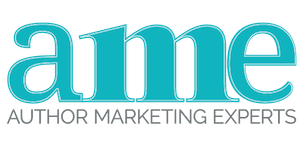
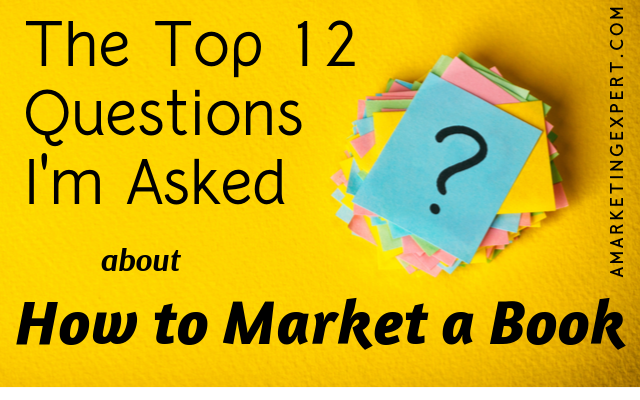
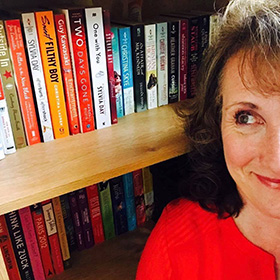
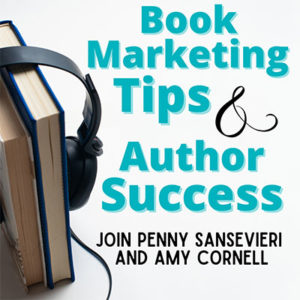
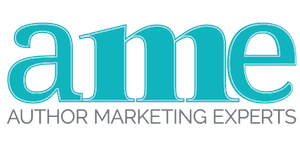
I enjoyed reading the topic, and thank you for sharing it with us
Best Regards
thank you for article
thank you